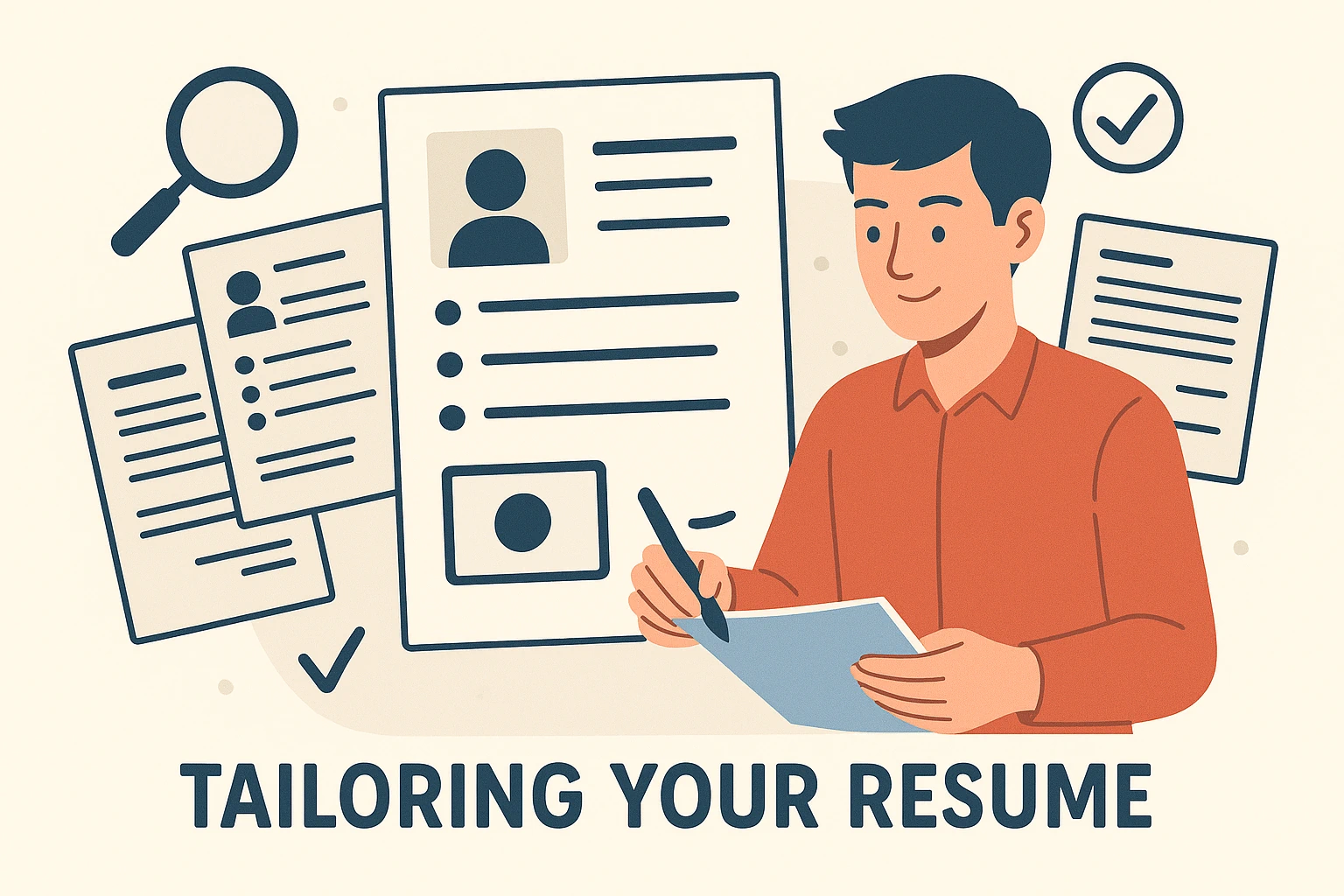1. Overcoming Interview Anxiety
If the mere thought of job interviews turns your stomach into knots, you’re not alone. Interview nerves can affect anyone, whether you’re a seasoned professional or taking your first step on the career ladder. What if there was a way to turn anxiety into confidence? What if you could walk into every interview room feeling calm, self-assured, thus overcoming interview anxiety? This article explores practical strategies for interview stress management and boosting interview confidence.
2. Understanding Interview Anxiety
So, before we delve into the ‘hows’ of reducing nervousness before interviews, let’s first understand ‘what’ we are dealing with.
2.1. What is Interview Anxiety?
Interview anxiety, a form of performance anxiety, is the stress and fear associated with interviews. This anxiety can stem from the pressure to perform well, the fear of the unknown, or previous unpleasant interview experiences.
2.2. Recognizing the Symptoms of Interview Anxiety
Different people may experience various symptoms, but common ones include increased heart rate, trembling or shaking, dry mouth, and stomach troubles. Becoming aware of these signs is the first step in managing and overcoming interview anxiety.
2.3. The Impact of Anxiety on Your Interview Success
Unmanaged anxiety can hinder your ability to present your best self during interviews by clouding your mind, hindering your ability to answer questions effectively or establish a good rapport with the interviewers.
This article aims to provide practical tips to transform these moments of anxiety into opportunities for success, thereby helping you through the job hunting journey. For a more detailed guidance through the journey, do explore our comprehensive guide on Job Hunting and Interview Preparation for a wide array of related tips and strategies.
In the following sections, we shall explore the triggers for interview anxiety and the strategies you can adopt for effective interview stress management.
3. Common Causes of Interview Anxiety
Understanding the root causes of your stress is the first step in overcoming interview anxiety. Let’s explore some common triggers.
3.1. Fear of the Unknown
Not knowing what questions to expect or how the interview will unfold can be a significant source of anxiety. While it’s impossible to predict every question, thorough preparation can help alleviate some of this stress.
3.2. Lack of Preparation
Going into an interview without adequate preparation can definitely make you feel insecure. Preparation goes beyond knowing about the company, it extends to anticipating potential questions, practicing responses, and even planning the journey to avoid any last-minute hitches.
3.3. Pressure to Succeed
Another common cause of interview stress is the pressure to succeed. This could be because you’re desperate to leave a job you’re unhappy in, or maybe you’ve been job hunting for a while without success. Remember, every interview is a new opportunity and not a test of your worth.
4. Strategies for Overcoming Interview Anxiety
Now that we understand what’s triggering the stress, how about reducing nervousness before interviews? Here are some strategies to help you do just that.
4.1. Thorough Preparation
Before the interview, do your research on the company, the job role, and review your own CV. Ensure you’re able to relate your skills and experiences to the role you’re applying for. A good understanding of what’s expected can help increase your confidence.
4.2. Mindfulness and Relaxation Techniques
Adopt relaxation techniques like slow-breathing exercises or mindfulness meditation to help manage stress levels. These techniques can help calm the mind, allowing you to focus on the task at hand.
4.3. Positive Visualization
This involves mentally rehearsing the situation you’re anxious about. Close your eyes and visualize yourself in the interview, answering questions calmly and confidently. This can be a powerful method of preparing yourself mentally for the actual interview.
4.4. Mock Interviews
Simulating the interview situation ahead of time with a friend, mentor, or even in front of the mirror can help reduce anxiety. This practice can help you familiarize yourself with articulating your responses and improve your confidence.
Each interview is an opportunity to learn and improve. Even if you face rejection, remember it doesn’t reflect your worth. Our guide on Tackling Job Rejections: How to Bounce Back Stronger can provide some excellent tips to positively handle these situations.
Stay tuned for more interview preparation tips which can help you on the day of your interview.
5. Tips for the Day of the Interview
Implementing interview preparation tips can further boost interview confidence and significantly lessen anxiety. So, let’s dive into some tips for the day of your interview.
5.1. Healthy Eating and Physical Exercise
Proper nutrition and exercise can play a role in managing stress levels. Before your interview, consume a balanced meal, and if time permits, engage in some form of physical activity. Exercise can help to release pent-up stress and enable you to feel more relaxed.
5.2. Early Arrival
Planning to arrive a bit early for the interview can avoid unnecessary stress. Allow for unexpected situations like traffic or getting lost. Arriving early also gives you a few moments to relax, refresh, and review any final details.
5.3. Appropriate Dress
Choosing the right attire not only contributes to making a positive first impression but can also make you feel more confident. As we’ve discussed in our previous article, Dressing the Part: Perfecting Your Interview Attire, understanding the company culture and selecting appropriate attire can add to your confidence.
5.4. During the Interview: Maintaining Composure
Direct your focus on staying composed during the interview. Remember your practice sessions, utilize the relaxation techniques you’ve learned, maintain strong yet pleasant eye contact, and remind yourself of your strengths.
Employing these interview stress management strategies can help ensure you present the best version of yourself during your interview. For more comprehensive advice on everything related to your job search process, you can use our Comprehensive Guide to Job Hunting and Interview Preparation.
Stay tuned as we move on to explore post-interview reflection and anxiety management techniques in the next section.
6. Post-Interview Reflection and Anxiety Management
After the interview, taking time to reflect and manage your feelings is vital. Let’s explore some strategies for stress management post-interview.
6.1. Reflection: Assessing Your Strengths and Areas for Improvement
Post-interview, assess how you think the interview went, dissecting both the positives and negatives. Identify areas where you excelled, and note down where you need improvements. This self-awareness can be a powerful tool for growth and overcoming interview anxiety in the future.
6.2. Controlling What You Can Control
Remember, you can only control your preparation and how you perform in an interview. Don’t let factors outside your control, such as the mood of the interviewer or decisions about job offers, increase your stress levels.
6.3. Seeking Feedback: Continuous Improvement
If the opportunity presents itself, attempt to seek feedback from your interviewer. This can provide valuable insights into your strengths and areas of improvement as perceived by a third party. Use this feedback constructively to enhance your performance in upcoming interviews.
6.4. Each Interview as a Learning Opportunity
Irrespective of the outcome, each interview is a learning experience. Recognize areas where you can grow, implement changes, and with each interview, you’ll find yourself becoming progressively more comfortable and confident.
After an interview, managing anxiety and reflecting on your progress and ways to improve is as crucial as preparing for the interview itself. If you’d like to explore other facets of interview preparation, our guide A Comprehensive Guide to Job Hunting and Interview Preparation, can be a great resource.
Stay tuned as we wrap up with our conclusion in the next section.
7. Conclusion
Overcoming the anxious knots in the stomach before or during interviews is achievable, and cultivating resilience against interview anxiety is a journey. Remember, every interview is a step forward in your career journey. Each one offers unique insights, learnings, and experience that help you grow and prepare you for the road ahead.
Whether it’s understanding your anxiety, recognizing its triggers, or implementing strategies for overcoming interview anxiety, taking care of your mental wellbeing is as crucial as polishing your technical skills for interviews. As you gain experience and arm yourself with these interview stress management strategies, you’ll find yourself growing more confident, composed, and ready to conquer any interviewing challenge that comes your way.
For comprehensive resources that guide you through the fascinating journey of job hunting and interviews, our Comprehensive Guide to Job Hunting and Interview Preparation has got you covered. From reducing nervousness before interviews to acing the follow-up process, these holistic guides aim to equip you with all the tools necessary to navigate the world of job hunting with confidence.
Remember, each interview is more than just an opportunity to land a job; it’s a chance to learn, grow, and refine your skills. Stay positive, stay prepared, and sail smoothly towards your career goals.


